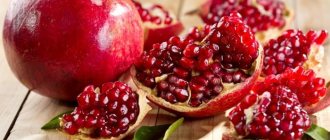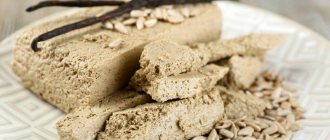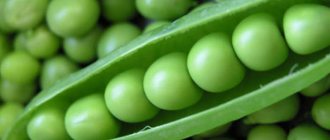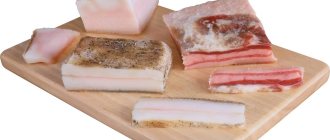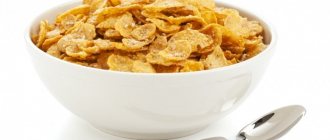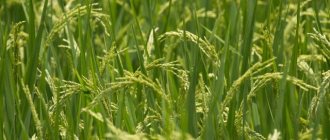What is asparagus
Asparagus (lat. Asparagus) is a perennial plant of the asparagus family, found on all continents, most often in dry areas. Asparagus is characterized by a developed root system and significantly branched stems with a large number of branches, similar in shape to needles (cladodes) and collected in bunches in the axils of the leaves. There are so many varieties of plants - from herbs to shrubs.
Did you know? Asparagus can grow where other vegetable crops do not take root - in areas where the soil is saturated with sea water. Therefore, salt is often added to the soil where this plant is planned to be grown.
Asparagus leaves are small, underdeveloped, with numerous scales or spines. The flowers are small, regular, bisexual. They can be either solitary or in thyroid or racemose inflorescences. The main part of the flowers is formed in the axils of the leaves. The fruits of the plant are berries with dark seeds.
The upper shoots (about 20 cm) of succulent shoots of some varieties of asparagus - medicinal, short-leaved, whorled - are mainly eaten. They are a delicacy and are used both for preparing delicious dietary dishes and in cosmetology and traditional medicine recipes.
Young asparagus is considered the most tender and delicious . It contains the maximum amount of valuable microelements and goes well with eggs, bacon and shrimp. In Italian cuisine it is often used in the preparation of pasta and pizza.
We advise you to read whether asparagus is healthy.
Calorie content and chemical composition
Chemical composition of 100 g of fresh asparagus:
| Vitamins: | Microelements: |
|
|
Video: Useful properties of asparagus

| Nutritional value of 100 g of fresh asparagus: | Macronutrients: |
|
|
Did you know? Even in ancient times, it was noted that asparagus has a beneficial effect on the functioning of the hormonal system. This is probably why newlyweds in Ancient Greece wore asparagus wreaths. And the festive table of the French newlyweds necessarily included three asparagus dishes.
| Digestible carbohydrates: | Polyunsaturated fatty acids: |
|
|
| Saturated fatty acids | 0.04 g |
What are the benefits of asparagus during lactation?
- Eating asparagus is of great benefit to women who are breastfeeding:
- vitamin A has a beneficial effect on vision and skin;
- zinc helps heal wounds and damaged tissues;
- potassium is good for the cardiovascular system;
- magnesium and potassium help remove excess water and toxins from the body and relieve fatigue;
- nicotinic acid has a positive effect on liver function and prevents vitamin deficiency;
- folic acid helps eliminate hormonal imbalances and avoid anemia;
- shoot fibers improve the functioning of the digestive system and help cope with flatulence;
- through mother's milk - iron, zinc, magnesium contained in the plant have a positive effect on the formation of bones and connective tissues of the baby;
- regular use of the product prevents the development of osteoporosis and strengthens the bones of a young mother;
- a high concentration of the natural probiotic inulin helps normalize the gastrointestinal tract and creates favorable conditions for the colonization of the intestines with beneficial bacteria;
- the plant contains some anti-inflammatory substances and antioxidants;
- low calorie content, high fiber and protein content help a young mother improve digestion and lose excess weight;
- juices and decoctions of the plant are included in cosmetics and rinses to strengthen hair.
Important! The microelements contained in asparagus help the production of dopamine and serotonin, which improve mood and normalize sleep.
What are the benefits of asparagus?
The color of the plant depends on the growing method. Green asparagus grows at the top, purple is in the ground with the tip on the outside, and white is completely in the ground. Green asparagus is the most popular and beneficial for breastfeeding; white asparagus has an exquisite taste, has more fiber and is more expensive due to the difficulty of growing. In order for it to be useful and edible on the table, its shoots must be young and soft. The composition of asparagus is rich in vitamins A, B1, B2, B3, B4, B5, B6, B12, K, potassium, iron. Particularly useful in this vegetable for pregnant women and nursing mothers is the presence of folic acid. It has a positive effect on the baby’s intrauterine development, regulates hormonal levels, and is a preventative against cervical and breast cancer.
- Has a diuretic effect, reduces swelling, fights infections in the genitourinary tract;
- Provides the intestines with the correct microflora;
- Positively affects the skeletal system, prevents the development of osteoporosis;
- Normalizes sleep, appetite, improves mood, memory, helps get rid of stress;
- Participates in the processes of intracellular metabolism, which is a way to prevent the development of cancer;
- Helps in the fight against excess weight, due to the fact that it is a low-calorie product and is easily digestible;
- Has the ability to remove harmful substances and toxins from the body;
- Has anti-inflammatory and antifungal effects.
Rules for introducing into the diet
Any product in the diet of a nursing mother enters the baby’s body through milk, affecting its condition and functioning of the gastrointestinal tract. Therefore, new products, including asparagus, should be introduced into the diet gradually , eating a small piece per day. And in any case, do not eat dishes with asparagus more than once a week.
For cooking, only very high quality fresh shoots should be used. Eating canned asparagus, such as pickled asparagus, is highly undesirable. Such a product may be unsafe for the baby's health.

Asparagus while breastfeeding - is it possible or not?
The answer to the question whether asparagus can be eaten while breastfeeding worries many mothers. After all, every woman wants to give her child only the best. Due to the fact that asparagus contains quite a lot of active chemicals, you should be careful when consuming this plant while breastfeeding.
Mothers who have thick blood should be especially careful when breastfeeding. The fact is that potassium, which is part of the plant, has the property of thickening the blood, and this increases the risk of blood clots. This especially often manifests itself during pregnancy, when the heart has a double load.
Despite the fact that the vegetable is not a strong allergen, there is still a risk of individual intolerance to the product by the child. Therefore, you need to start introducing asparagus into your diet while breastfeeding with a small piece. In order for it to be better absorbed, it is advisable to try it before breastfeeding a newborn.
It is not recommended to try two new products on the same day, as it will be difficult to determine which one caused a reaction. If a child has noticed rashes on the body, changes in behavior, quality of stool, sleep disturbances, bloating, colic, then you should immediately stop eating asparagus for a month. Then try again, and if the reaction repeats, then you need to give up asparagus altogether.
Important! The sulfur analogue of alcohol found in asparagus shoots can change the color and taste of milk. This may reduce the child's appetite.
The color and smell of your baby's urine may also change. But there is no need to panic. It is important to monitor the baby’s reaction and not overuse the product. It is advisable for a nursing mother to eat asparagus no more than once a week.
Rules for use after childbirth
If a young mother is breastfeeding, then in the first couple of months of his life he should avoid eating asparagus , as it increases the risk of digestive upset. The shoots can cause flatulence and, due to the high content of mercaptan - a sulfur compound - provoke a sulfuric smell of body secretions.
Accordingly, eating asparagus affects the taste and smell of mother's milk , and the baby may begin to refuse to eat. It should also be taken into account that these shoots in the diet of a nursing woman can not only increase the risk of gastrointestinal disorders, but also change the smell of the baby’s urine.
We recommend reading whether you can eat parsley while breastfeeding.
Is it okay to eat asparagus while breastfeeding?
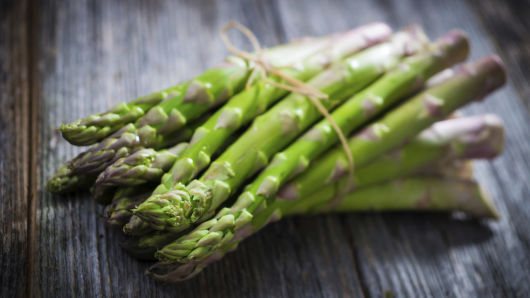
It is undeniable that when breastfeeding, the main task of the mother is to provide the baby with high-quality milk. To do this, she has to adhere to special diets or simply eat right. The list of desired food products during this period includes vegetables, some fruits, dietary meat, fish, and cereals. Of course, products of plant origin have priority, since they saturate the body of mother and child with the necessary vitamins, are easily digestible and do not contribute to weight gain in a woman. There is controversy about feeding certain vegetables to breastfeeding mothers. These include young shoots of asparagus (aka asparagus officinalis). This product has not found wide distribution in our territory, but it can be found on store shelves and on the menus of elite restaurants and cafes. Despite its huge supply of useful substances, asparagus should be consumed with caution when breastfeeding.
What time of day is best to consume?
It is better to eat asparagus dishes in the first half of the day, after which you should carefully monitor the baby’s reaction to the new product. In case of negative manifestations - colic, rashes, upset stomach - you should avoid eating asparagus. And be sure to consult your doctor for further recommendations.

The most important thing in cooking asparagus is not to “overcook” the vegetable; the finished shoots should be crispy inside
It is also better not to consume asparagus on an empty stomach, as it can cause intestinal upset in both the young mother and the baby undergoing breastfeeding. The digestive organs of newborns are extremely sensitive, so even if the woman does not immediately notice negative manifestations, the baby may experience some discomfort.
Important! Because asparagus is high in potassium, it should not be consumed by those taking blood thinners.
Asparagus during breastfeeding
Doctors believe that nursing mothers should be careful when consuming asparagus, since the product has an extremely active effect on the body.
It is important to take into account that asparagus can cause increased gas formation and belching, and provoke the appearance of an unpleasant odor in discharge (urine, sweat), since it contains sulfur compounds (mercaptan). Accordingly, the taste of breast milk changes, and the baby may refuse to eat. Infants also have an increased risk of gastrointestinal disorders.
A young mother is allowed to consume asparagus in a limited amount - no more than once a week, in small quantities, in heat-treated form. Asparagus should be introduced into the diet gradually, making sure that the baby is not allergic to the new product.
For cooking, it is advisable to use only young fresh shoots - pickled asparagus, like any other canned product, is unsafe for the health of a breastfed baby.
Possible harm and contraindications
In some cases, consumption of shoots by nursing women can be harmful.
- So, they are contraindicated for:
- ailments of the gastrointestinal tract;
- the presence of stones in the urinary organs;
- exacerbation of cystitis;
- joint problems (gout, rheumatism);
- history of allergic reaction to culture.
If a woman suffers from diabetes, then the use of asparagus should be discussed with her doctor. And also take into account that white asparagus has a higher sugar concentration than green asparagus.

If you or your relatives experience allergic reactions of any type, or in your baby you notice persistent dry skin or persistent prickly heat, you need to follow the diet especially strictly
In general, asparagus is an excellent dietary product that has many beneficial properties for the female body. When used correctly, shoots will be an excellent addition to the daily diet of a young mother and will bring great benefits to both her and her child.
Contraindications and harm
Whenever talking about possible contraindications for food products, it is customary to start with allergies. Asparagus is no exception. Although this plant is definitely not included in the list of truly allergenic products (such as honey, nuts or citrus fruits), sometimes there are still people who have an individual intolerance to certain components of asparagus. This is especially true for purple and green plant varieties, since they are rich in vitamin A, which often causes an allergic reaction.
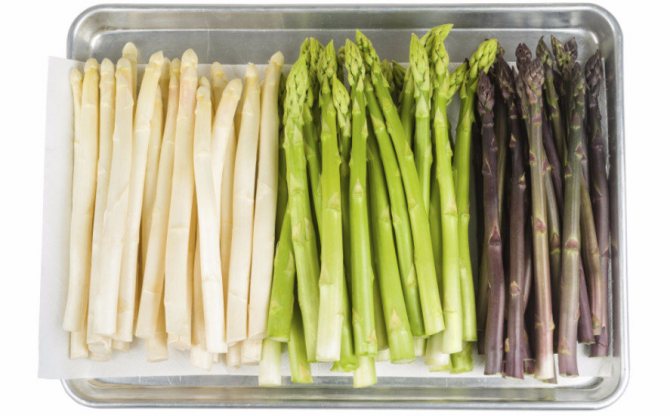
This pathology is dangerous not only for the expectant mother, but also for the fetus. In particular, the baby may experience hypoxia (oxygen deficiency), development may slow down, and in especially severe cases, even fetal death and miscarriage may occur.
Important! When taking blood thinners, a pregnant woman should limit her intake of foods rich in potassium.
For all its usefulness, asparagus can cause an exacerbation of a number of diseases, and this applies precisely to those organs on which, in their healthy state, the plant has an extremely beneficial effect. The rule “there is medicine in a spoon, poison in a cup” in this case works in a slightly different form.

In particular, women who suffer from diseases of the gastrointestinal tract, kidneys (including cystitis in the acute stage), and joints should not overuse dishes containing asparagus. If you have diabetes, you should discuss the possibility of eating asparagus with your doctor, but in this case it is better to give preference to green rather than white asparagus, since the latter has a higher sugar content.
In addition, a nursing mother should consume asparagus with some caution, as this plant contains too many chemically active substances. Doctors recommend first eating a small amount of the product and observing whether the baby’s condition and appetite change. Only in the absence of any side effects can the dose be increased, but it is still undesirable to eat asparagus more than once a week during lactation, since otherwise it may cause the baby to :
- food allergies may develop;
- The tummy may become bloated and belching may become more frequent;
- stomach upset may occur;
- You may lose your appetite.
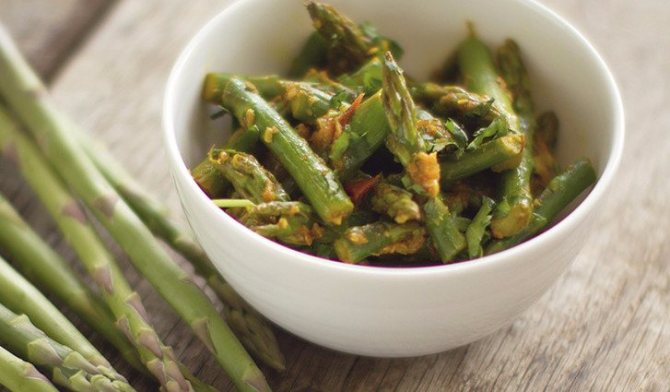
This is a sulfurous analogue of alcohol with a pronounced unpleasant odor. When thiol gets into milk, it can change its taste, and this innovation will most likely not delight your baby. Did you know? If the urine of a newborn baby has an unpleasant sulfur smell, this may be due to the fact that the mother ate asparagus the day before. So don't be alarmed, just adjust your diet a little.


